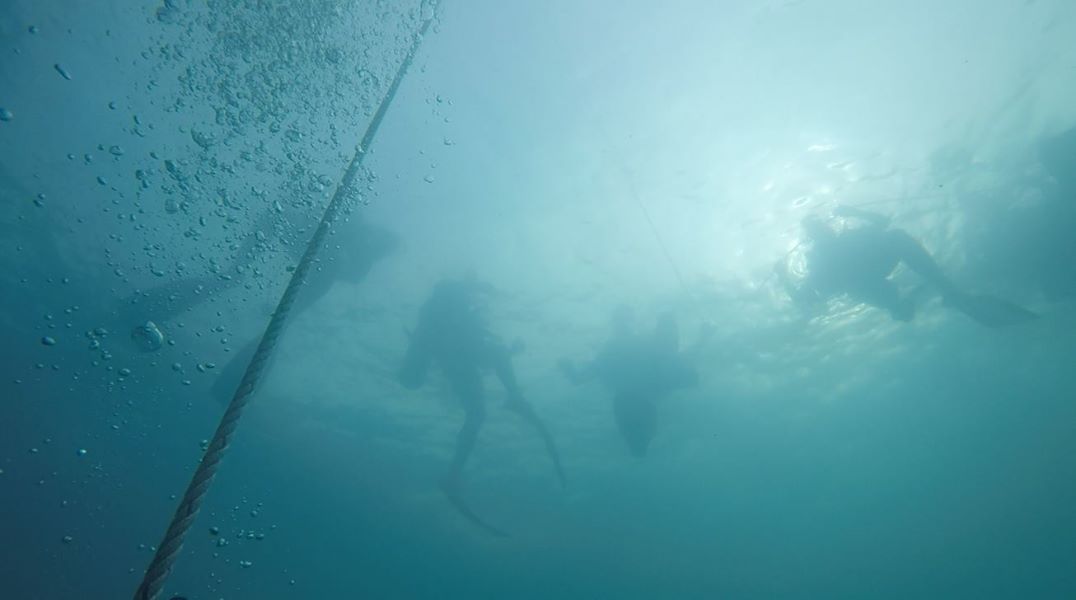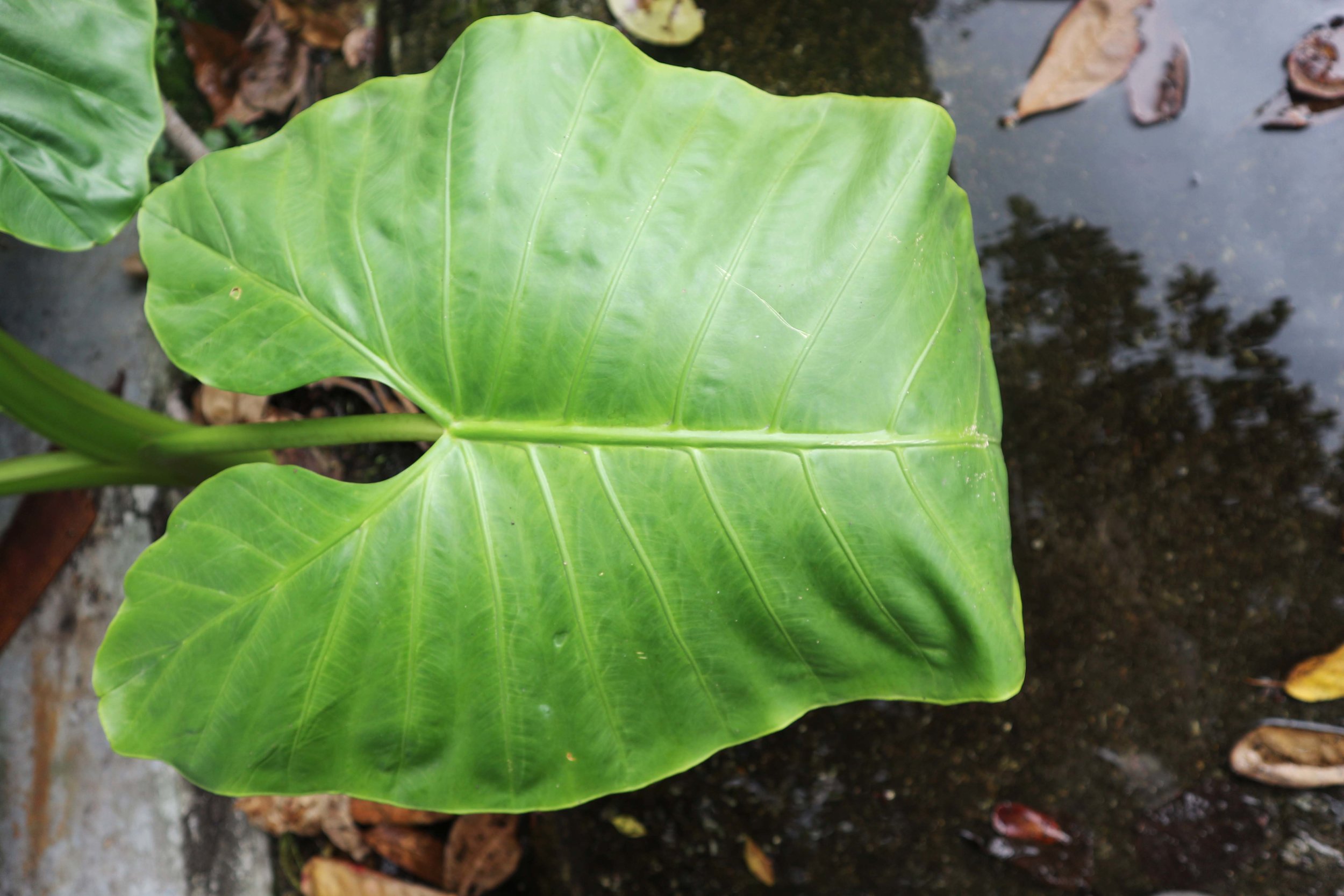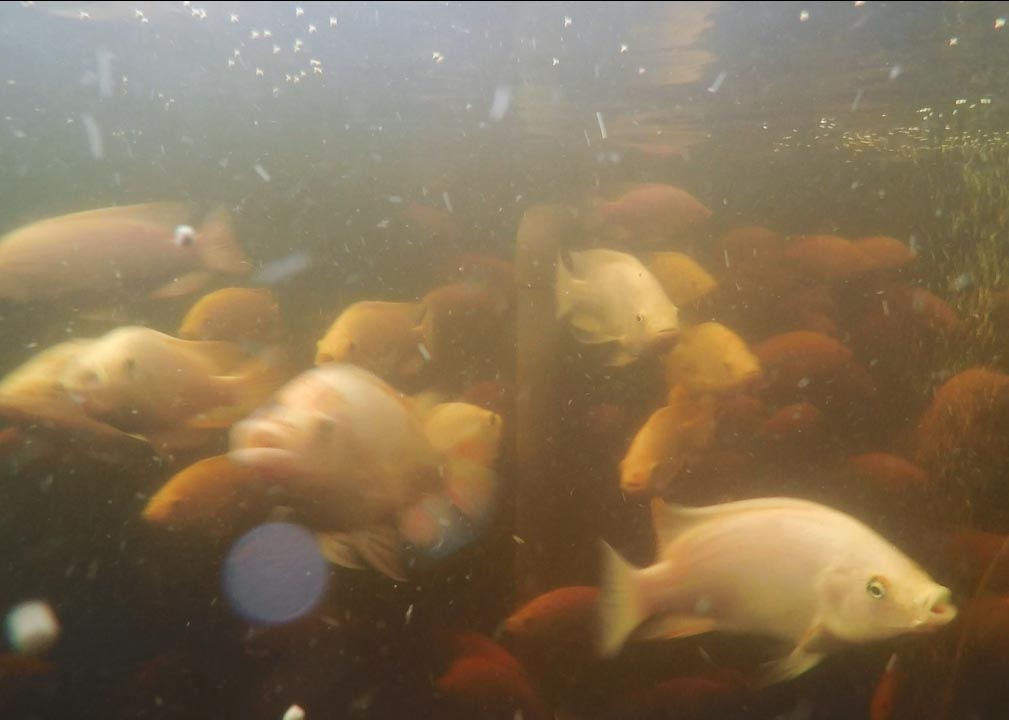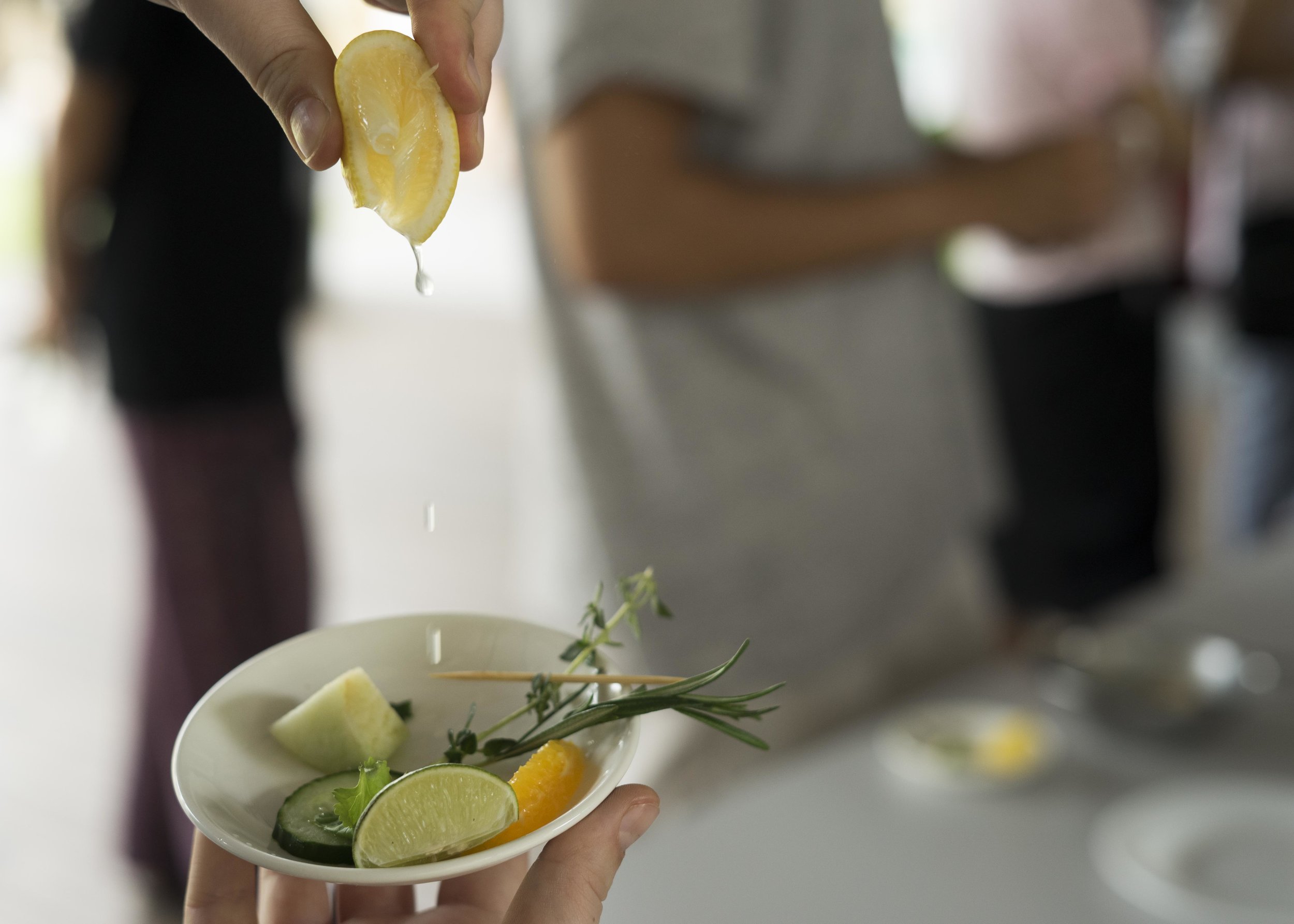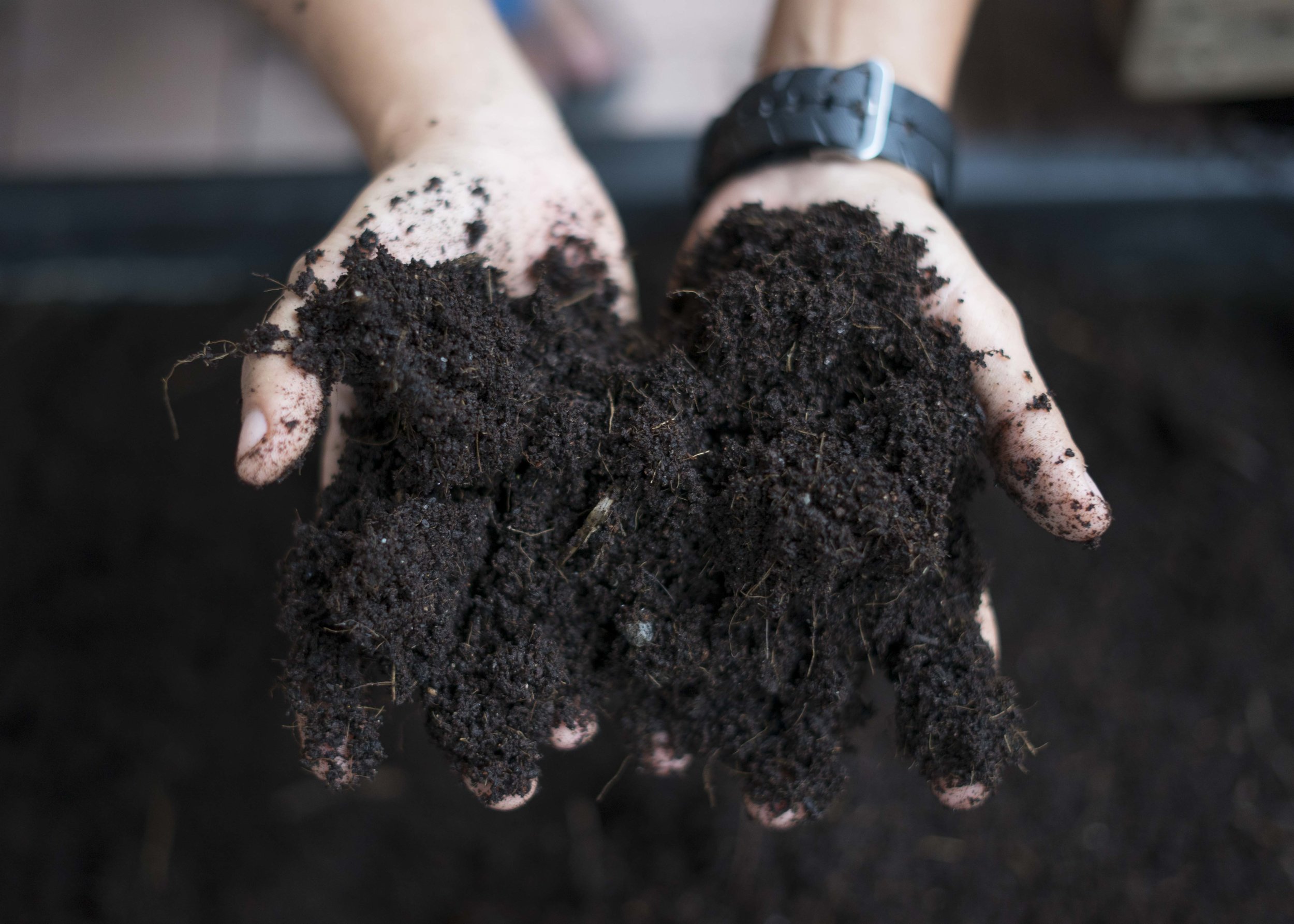SERUKAM FARM
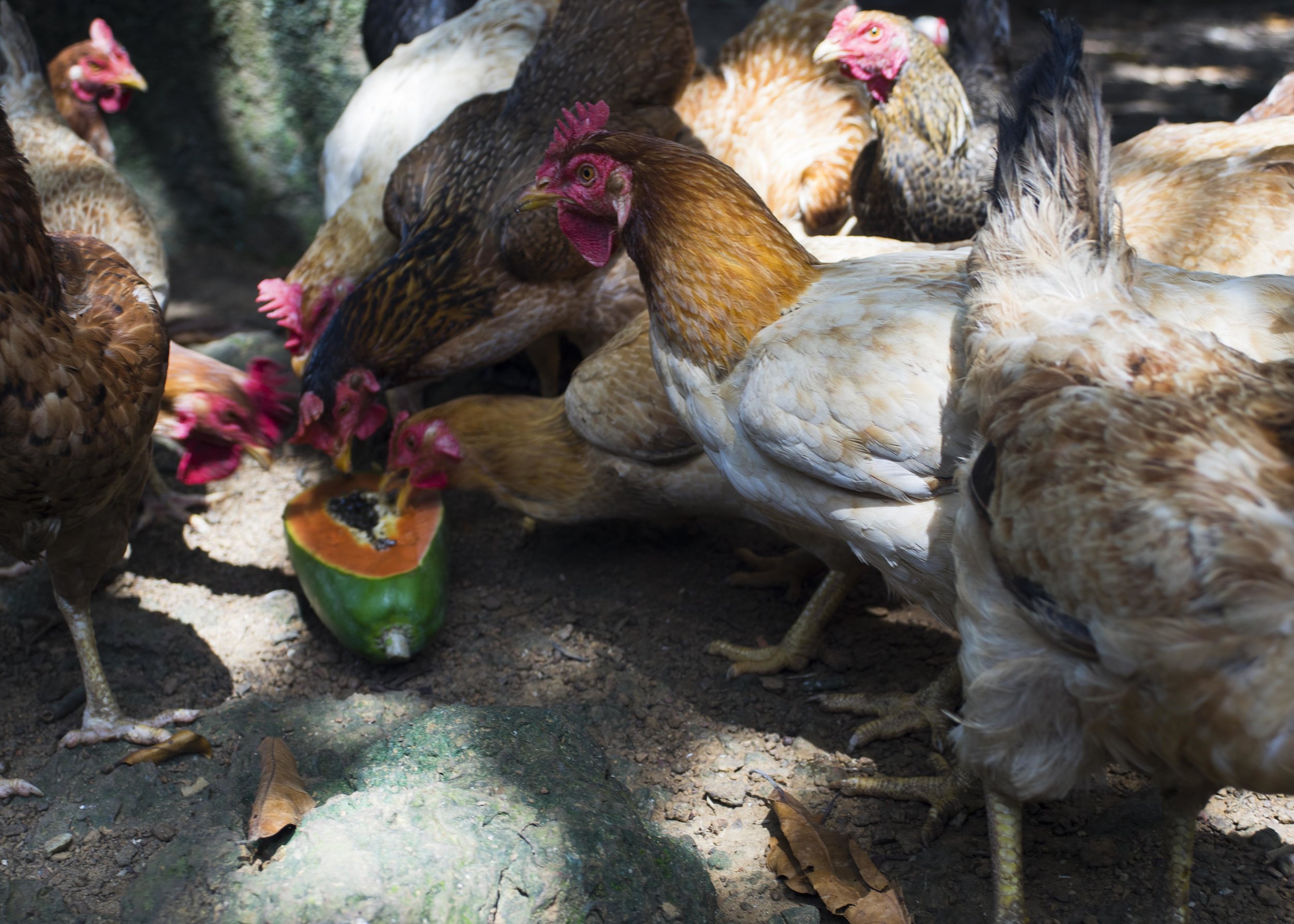
breakfast
SERUKAM FARM TOUR
LUNCH
ROSELLE HARVESTING
AFTERNOON SNACK
EVENING AT THE FARM
GOURMET DINNER FOR THE CHICKENS
DINNER for the humans
what's on your plate?
Food that I grow myself always tastes better. Food that is nourished by a healthy ecosystem and wonderful people, harvested fresh, tastes better too. When is the last time you went out to a farm to pick your own produce? If you want to learn more about your food one of the most exciting ways is to go out to a farm and volunteer. Get a taste of the work and love put into good food. The more I volunteer to help others grow food, the more mindful I am when I eat. I don't always know who grows my food, but I silently thank them before I eat, knowing that a huge amount of effort was put into growing the food I eat every day. Consider digging deeper into what is on your plate by volunteering on a farm. You could simply go for a few hours, or if you have more time you could check out WWOOFing and volunteer for anywhere from a few days to a few months! If you're more interested in volunteering for a day or just a few hours, google farms in your area and decide which type of farm you want to volunteer at. The farmer's market is another great place to meet farmers in person and ask if you could arrange a time with them to come out and volunteer. Remember that it may take a few tries to reach out to farmers, they are very busy people! When volunteering on a farm, remember that all farms are unique in many ways from what they grow, their philosophies behind growing food, the soil, the climate, the farmers, and much more. If one farm doesn't click well with you, don't worry! There are plenty more out there to explore.
After a breakfast of Nasi Lemak wrapped in a banana leaf and newspaper we drove to Seri Asana to visit Xin and Fred at Sarukam farm! We met them at the pop-market at the In-Between Arts Festival last weekend. Kai Yee drove to the market, and then called Xin. A few minutes later Fred and Xin appeared out of nowhere. They were on a motor bike and signalled for us to follow them to their farm. We drove for a few minutes, past some palm oil, and then made it to the farm! They welcomed us and we sat down for a chat over coffee and tea. I took in the huge leaves on the many trees surrounding their home, the chickens scattered about the place, and the welcoming vibe in the atmosphere. We chatted about seed saving and more. After some talking Xin asked if we wanted to go see their 100+ chickens! I had seen some photos of their place farm the awesome blog they write and was eager to see and learn more.
We got up and went to the gate that was cleverly being held shut with a pulley system. The chickens looked very happy and had a wonderful home. There were three wooden "chicken apartments", one which was attached to a shed. There was also a love shack and a hospital. In the shed, Xin showed us the egg incubation system they had as well as some of the chicken feed. Fred and Xin feed the chickens a gourmet diet of coconut, food scraps (including papaya!), black fly larvae, and perhaps a few other things. The coconut comes from hawker (food stalls) waste they get for free. The love shack had custom built nesting places for hens to comfortably lay their eggs. Xin explained that every hen has a preference on where they lay their eggs, so they made a variety of spaces and let the birds choose. Before they made this structure, hens would lay eggs wherever they pleased and they had to go find them all! Sounds a bit like an Easter egg hunt every day. We looked at the hospital next. Thankfully, there weren't tons of patients in quarantine. Fred explained that when a chicken is weak or crippled they often give them their own cage so the other chickens don't bother them.
Behind the hospital we saw their bathtub of compost and black flies. It was very colourful from all the fruits and veggies they eat. Fred described the conditions needed to attract black flies were a compost pile that was mostly dark, but had some holes to let the flies in. There was a tube from the tub drain to a bucket where they would catch the protein-filled larvae to feed the chickens and another bucket beneath the middle of the tub catching the nutrient-packed compost juice. I was very impressed with their use of so many recycled items. The covering they used for the tub was an old door! Xin explained that their uncle, whose land they are farming on, likes salvaging and re-using old stuff.
Next, we walked to their plant nursery with a roof of passionfruit and a gorgeous mosaic table. I love that they use plants for extra shade! The nursery was surrounded by raised beds made from old roof tiles and filled in with compost and plant matter to make soil. In one of the raised beds Fred showed us cat whisker, which they use to make cat whisker tea. This was my first time ever seeing passionfruit still on the vine. Fred offered us some, which we made into juice later! Beside the nursery was another series of raised beds, one of which was an African Keyhold garden. Fred explained that the ideology behind this type of garden is that food scraps are put in the middle and when the rain comes, the nutrients from the food is pulled into the surrounding soil. In these gardens, there is a huge biodiversity of plants including sweet potato leaf, papaya, spinach, Thai basil, many other types of herbs, barley, tomatoes, cosmos (a yellow edible flower!) roselle, lemongrass, and corn! On the spot Xin offered that we could try the barley straight from the seed and we did. I asked Fred how they decided what to plant and he said that they experiment with new seeds when they get the opportunity and explore where certain plants grow best by testing them in different parts of the garden. Other things like lemongrass they plant everywhere because it helps keep the garden healthy attracting good insects and repelling bad ones.
During the short walk to their next garden we passed an old chicken tractor they used to use. They do not use it anymore because one time the land flooded and some chickens trapped in the tractor almost drowned! I also saw lotus growing in a pond. We had eaten fried lotus root the night before but somehow my brain didn't translate the shape into this flower until now! The big pink flowers were gorgeous. I looked over to my right and Fred was fishing out a seed pod for us to try the fresh lotus seeds! Kai Yee said this reminded him of his childhood. The seed was about the size of my pinkie nail and tasted refreshing.
This next diverse garden they showed us is their first garden they started here. The soil on this area of the property is much better. The space they are farming in used to be a swamp and then was slowly filled in with concrete, and other materials that are tricky to grow things in. That is why they are using the raised beds. A bit further along the path across a small bridge over the small part of the wetland they are preserving we saw and tasted the mustard greens they are growing. I also saw tons of papaya trees, lime bushes, custard apples, roselle, and gelanggang . We were lucky that gelanggang was flowering now. Fred makes a balm form the gelanggang leaves that helps cure mosquito bites and other skin issues and that I later found out they also use on their dogs to help skin problems! The gelanggang had been on the land for a while and neither Xin nor Fred knew anything about it until Xin saw the flowers one day and looked them up online. Ever since they have making, using, and selling this balm! Further along the path in the orchard Fred showed me a 1 year old coffee tree he was growing! He had gotten the seeds from Thailand and was growing a few different coffee trees in different areas to see which would work best. The seeds would be able to be harvested in another 2 years or so.
Beyond the orchard we could see the back of their neighbour’s cow farm. The water around the farm was surrounded by water thick with manure that is bleeding into the wetland Xin and Fred are trying to preserve. Xin told me how unfortunate it is that some of their neighbours are treating the land like this. Other neighbours of theirs are spraying herbicides on the land close to Xin and Fred's well. They have asked their neighbour to stop many times, yet their neighbour has not stopped. We then walked over to visit their favourite neighbour, a grown-over lot! This space was basically a jungle. I saw two monkeys playing in the trees. The large concrete space is where Fred and Xin have made a super-secret badminton court.
On the way back to the house Fred showed us some dragonfruit cactus, their compost and manure piles, the papaya forest, some pineapple plants, a hybrid fruit tree that has fruit that look like large custard apples, and his workshop. Writing this now I am smiling just thinking about the plethora of biodiversity at this farm. It is so refreshing and inspiring to see. Several times during the farm tour Fred and Xin offered seeds to Kai Yee. They are excited to come visit his farm one day and continue to swap farming advice.
Back at the house we said hi to the many guests of Xin's uncle that were there and sat for a quick rest before lunch. We were offered a homemade sweet drink and Fred told us about some of the educational things they have done with the farm. Every week schoolchildren come and learn at the farm. They have also made interactive posters about the environment to display at festivals and other events. He said that kids are interested in the interactive things they make. He also told us about one time they were invited to go talk at a school about recycling and the environment. For one portion of the presentation they made up a story of plastico and plastica, two plastics that fell in love and then were thrown out! They discover what happens to plastic as it is thrown out. During this story Fred and a friend were dressed up in plastic playing the roles of plastico and plastica as Xin narrated the story in Chinese. Fred said he enjoys teaching children about farming the best, as they have open minds and get excited about learning what he is teaching. It is sometimes more difficult to teach a mind that has been already shaped by society and individual experiences.
Fred and Xin had a huge pot of boiled roselle and sugar that we poured into two large jars. In roughly 100 days it will be roselle wine! I look forward to hearing from them how it turns out. For lunch, we ate a tasty spread of rice, beans, a mixed veggie dish with mushrooms, squash, and soup. After some more good conversation Fred suggested we played a dice game. I was surprised that I knew the game he suggested, Yahtzee! When I was a kid I would play this on the computer. Kai Yee chose to just observe the game and not play. Fred noted, "The first rule of permaculture is observation". The wooden dice were full of luck for me in the beginning of the game as I got a Yahtzee on my first roll! The game was fun and Xin ended up winning. After the game, we got ready to go harvest some more roselle to make more wine!
Fred gave us each a pair of scissors and gave Peder a hat. Xin brought two buckets and we all walked down through the gardens to the orchard where lots of roselle is growing. We chopped the larger buds off the plants and after a while filled both large buckets! As we were harvesting I asked Fred and Xin about how they became farmers and we chatted about other people’s perceptions of their lifestyle. Xin is from Malaysia. She didn’t like her job and when an opportunity came up for her to leave she did and decided to go explore Australia when working visas became available. After working in Australia, a bit and traveling around in a van with a friend she discovered WWOOFing. She learned some farm knowledge WWOOFing. This is when she fell in love with plants. “Not animals, plants”, she told me. Eventually (I’m sure between many great adventures) she ended up working on a ship sailing around Europe where she met Fred. The two of them and three other friends wanted to start a farm somewhere and decided to come to Malaysia to use the land owned by Xin’s uncle that we were standing on as she told me this story. However, after a bit the three other friends decided Malaysia was not the place for them and went looking for farmland in different countries. Unfortunately, they did not end up finding any land and split ways to head back to their homes. Meeting on a ship sailing around Europe sounded like such an interesting place to meet and I was curious what Fred’s journey had been before meeting Xin on the ship.
Fred said he was quite rebellious when he was younger and didn’t like school. So, when his dad met a ship captain he asked if Fred could join the crew! At the young age of 16 Fred joined the crew of a research ship sailing around Asia! He said it opened his eyes and changed his perspective of a lot. After one year, he decided to go back to school and finish. A bit later he re-joined the ship and that is where he met Xin!
Throughout this trip my mind-set on farming has been slowly changing. Although I consider myself decently educated on farming, as I interned at a small organic farm two days a week last summer, I keep learning how little I know as I learn more. This sound may counterintuitive, but it makes a lot of sense to me. Basically, as I understand farming more through meeting more farmers, visiting more farms, and working on more farms I am understanding how complex farming is. Every farm is unique from the methodologies they use to grow food to the minute climate differences and soil differences to the plants they choose to grow to the unique personalities and preferences of the farmer themselves. I am so impressed that Xin and Fred have such a successful, plentiful, and diverse farm after working their land for less than two years! It inspires me to see that so much can be grown in so little time.
While harvesting Fred and Xin told me that many older people often ask them, “why are you doing this with your life?” I can imagine this is difficult to hear. They explained that many people do not understand that what they are doing, growing organic food and healing the soil, is so important. Fred emphasised that he does not want to tell anyone what to do at all and respects many ways of life. I mentioned that it is interesting that Fred and Xin seem to be okay with other people doing what they do, even though it may be harming the world while many people constantly question people who actively choose to live as an organic farmer to do good in the world. I also asked them, "How did you learn to become a farmer?". Xin replied, "I just started farming". I chuckled a bit. After some more harvesting Fred chimed in, "We learned from previous farming experience, talking to farmers, and online information too." After reflecting, it makes so much sense that they let nature teach them how it grows. It's kind of like raising children. One can read all the books in the world, but still not know the perfect way to parent a child. Only by the act of raising a child (or growing a plant) can one gain a deeper understanding of how to help something grow.
We brought the harvest of two huge buckets of roselle up to the farm and Xin soaked them in water to clean them a bit. Xin asked us if we wanted some papaya and passionfruit juice, which for the record I will always say yes to, especially if being asked by someone who grows both fruit! Xin cut the passionfruit open as I de-seeded and cut up the papaya. Xin mentioned how different each passionfruit was from colour to smell. We then tossed it all into a blender and mixed it all up. The only other thing Xin added was a bit of water to help it all mix together. The juice tasted so fresh and sweet. Xin then suggested that we peel some roselle in preparation for more fermented goodness! She grabbed a big basket of roselle and we went at it. After not too long we had pealed 12 kilos (over 25 lbs) of roselle!
As we were peeling the roselle, Xin told us a story about an old man, his son, and their donkey. One day a father and a son were going into the market with their donkey. The father told his son to ride the donkey on the way there and the father would ride on the way back. As they walked into the village, the villagers saw the father and son and thought the son was so rude to his father to not let the old man ride the donkey. So the boy got off and let his father ride. They walked a bit further and the villagers started to point and say that the father was so rude to not take care of his son and let his son ride the donkey. So the boy got on the donkey with his father and they kept on walking. Then, the villagers said, “poor donkey, why are you being so hard on this animal?”. Finally, the boy and father both got off the donkey and kept walking. This time the villagers said, “You must be stupid, why is nobody riding the donkey?” We all laughed. Xin said the moral of the story is to just do what you think is best, you will never make anybody happy.
After our hard work we went to hang out with the chickens as they were fed. They got another gourmet meal of food scraps, papaya, coconut, and black fly larvae. After observing their dinner Peder and I started taking photos and videos in the beautiful light of the sunset, and saw Fred and Kai Yee come out to harvest some salad for dinner. I was impressed with the diverse amount of greens and flowers they chose from Thai basil to Brazilian spinach. They put in some garlic mustard, and so many other greens. After the harvest, we went back up to the house to cut up the greens for the salad. Fred grated papaya into the salad which I had never tried before but thought was a genius idea! He also put in some passionfruit and garlic. Xin set the table and we sat down to eat another delicious meal of rice, several different veggie dishes, salted fish, soup, and the ultra-fresh salad.
After a delicious meal with such kind and welcoming people we chatted a bit more before departing. Xin showed us some paintings she had done with a friend. The paint they used was made from combinations of roselle, turmeric, and tea mixed with different liquids. I was surprised to see that the roselle paint was blue! She said It was red when they painted it and then It dried to become blue. I was amazed at all the uses of roselle from making wine, into syrup to flavour drinks, as a salad topping, to make into jam, and some people even eat the bitter leaves! As the day full of joy, learning, and delicious food came to an end, I was a bit sad to say goodbye to Fred, Xin, and their dogs. I waved goodbye with a full nourished heart. Fred and Xin are such kind generous people doing such positive work. Their positivity, laid-back attitude, and excitement for their work has left my mind, even days later, happier and more hopeful too. It is clear they are following their passion and welcome the opportunity to share their knowledge.
I reflected on the day as we drove home to the sound of our collaborative Spotify playlist. Paul by Big Thief, one of my favourite songs, was playing as we drove into Kai Yee’s driveway. The car turned off before the song ended so I decided to go lay in my hammock and re-listen to the song, this time from start to finish. As I relaxed, looking up at the stars, I thought about the huge diversity of jobs and ways of living that I have seen on this trip. I thought about how even some part of myself says, “farming isn’t for you, it’s for other types of people”. And then for the first time, another voice said, “maybe I should consider becoming a farmer”. This voice didn’t waver, it wasn’t timid. I was shocked at my own thoughts. I still do not know what I want to do after this journey exploring regenerative farming around the world, but who knows, maybe one day I will fall in love with plants and become a farmer.
For more photos
check out our Instagram @regenerate_the_earth

















































































































